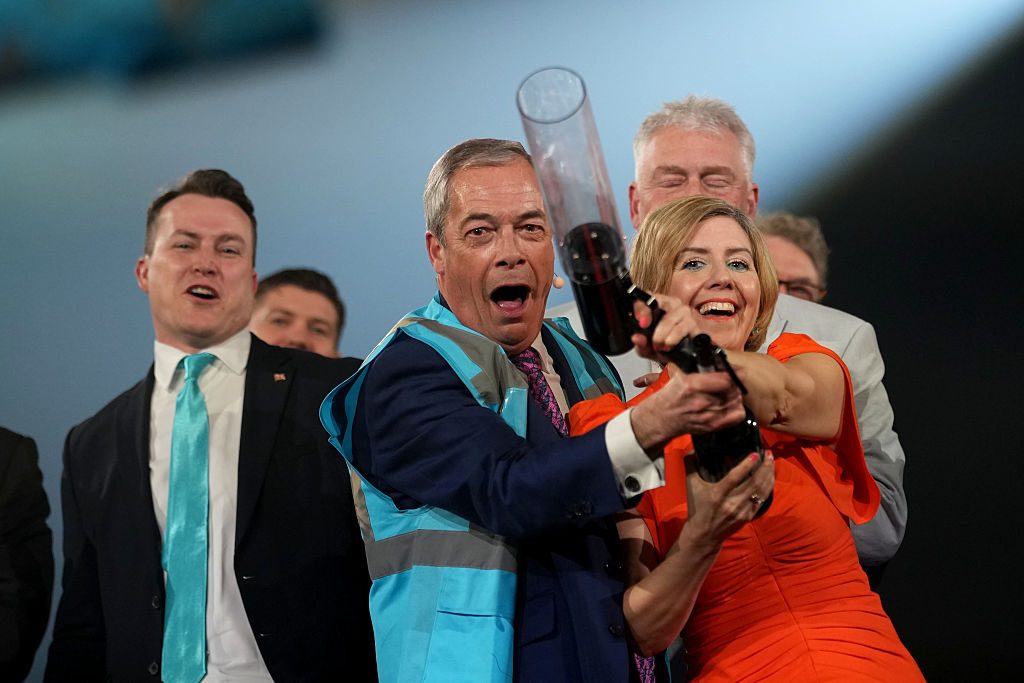Reform’s upcoming conference in Birmingham is set to be the biggest in the party’s — admittedly short — history. It is the first to take place in a world in which the prospect of a Reform government is a serious proposition. Yet, despite this professionalisation, there will still be points of difference from the more traditional political conferences held by mainstream parties.
The speaking line-up, for instance, does not just feature Reform MPs or their recently elected local government leaders. Rather, it now includes a newly announced star turn: former daytime television presenter Jeremy Kyle.
“It won’t be boring, trust me,” Kyle says in a clip promoting the conference. While his background as a controversial tabloid TV host may not segue into a political career, his persona nonetheless fits perfectly with Nigel Farage’s party.
As a political brand, Reform is currently as much about signalling identity as it is about policy. Without the history that ties it to communities — geographic in the case of the regional parties or the Liberal Democrats, or to communities of belonging in the case of the Conservatives or Labour — it has sought to embrace its newness as a weapon. This modern styling — more talk-show frisson than policy-panel earnestness — underscores the party’s youth, its lack of inherited baggage, and its willingness to reject “the proper way of doing things”.
This is not just about political history, of course. What some have termed Reform’s “camp and garish aesthetic” is a visual and tonal vocabulary designed very carefully to resonate with target voters. Farage — who has more TikTok followers than all 649 British MPs combined, and emerged from a 2023 stint on I’m a Celebrity… Get Me Out of Here! with his reputation enhanced — is canny when it comes to promoting his own and his party’s brand. More tabloid-attuned than its rivals, Reform embraces a populist bluntness which Kyle embodies perfectly. Reform’s political patois is direct and deliberately eschews the procedural theatre of Westminster, which its voters instinctively mistrust after so many years of failure, preferring instead a stagecraft much more akin to daytime TV: think combative press conferences and bright colours.
Yesterday evening Farage launched his new deportations plan, committing to five flights a day which would remove hundreds of thousands of asylum seekers entering the UK on small boats. YouGov polling from earlier this month revealed a broad range of the electorate supports stricter controls, with 45% saying they favour halting new arrivals and requiring recent immigrants to leave. When asked what would happen in the event that, under his premiership, an individual were deported to Afghanistan and subsequently subjected to torture or killed, Farage replied unapologetically: “that’s not my responsibility.” It’s a “whatever it takes”-style response which owes much to Donald Trump.
And, just like the US President, Farage has displayed a willingness to surround himself with familiar faces from beyond the political world. Former Olympic-champion boxer Luke Campbell is serving as Reform’s Mayor of Hull and East Yorkshire, while onetime TalkTV presenter David Bull was made party chairman in June. These figures extend Reform’s reach beyond the political pages and into the “real world” which most people inhabit most of the time. When the average voter spends less than five minutes a day thinking about politics, this is a handy way of attracting attention.
When I visited Britain’s first Reform UK Club in Blackpool earlier this year, it was striking how congruous the party’s branding was with the bar’s existing aesthetic. Newly-painted turquoise surfaces didn’t clash with the bar fonts and neon signs, and the fact that Farage’s face was plastered everywhere didn’t seem odd when every TV was playing GB News. Reform’s visual sensibilities — and its candidate selection — are being used as a way to transmit that the party is not just for the people, but of the people. Politics is now 90% presentation: if you like who is speaking and the way they say it, you’ve already moved some way to giving them your vote.











Join the discussion
Join like minded readers that support our journalism by becoming a paid subscriber
To join the discussion in the comments, become a paid subscriber.
Join like minded readers that support our journalism, read unlimited articles and enjoy other subscriber-only benefits.
Subscribe